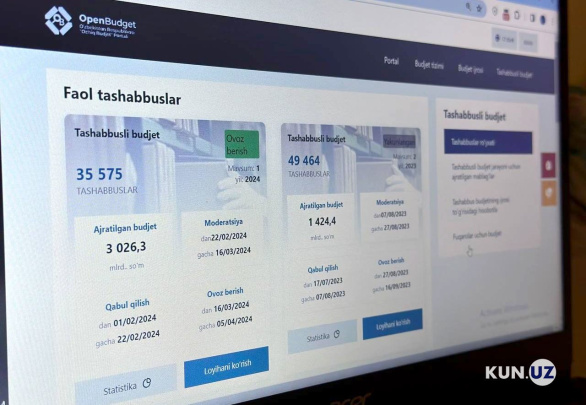Uzbekistan launched a project on management of hazardous chemicals
The €4 million project aims to reduce the use of hazardous pesticides in agriculture, create recycling facilities and promote alternative methods.

Photo: Ministry of Ecology
For the first time in Uzbekistan, a project aimed at rational management of hazardous chemicals is being implemented, the press service of the Ministry of Ecology, Environmental Protection and Climate Change reported.
According to the Minister of Ecology Aziz Abdukhakimov, previously very dangerous pesticides were used when growing cotton in the country; there were more than 450 small airfields in which a huge amount of hazardous substances accumulated.
The project pays great attention to the introduction of technologies for the extraction of these harmful substances from water and soil and their processing.
It is noted that in recent years, conservation has been carried out in the country at 8 facilities in which stocks of obsolete or prohibited pesticides and containers for toxic chemicals were buried, conservation began at two more facilities and reconstruction was carried out at one facility.
“Our partnership with the government of Uzbekistan and FAO is an example of a collective commitment to protecting the environment and public health by cleaning up obsolete waste, improving waste management and reducing the production of pesticide waste,” Wim Riepma, head of technical cooperation at the EU delegation to Uzbekistan, said.
The implementation of a joint project worth €4 million will allow:
• increasing the effectiveness of mechanisms and tools for managing hazardous chemicals and related waste;
• reducing the use of hazardous pesticides in agriculture, including the introduction and promotion of alternative methods.
Particular attention will be paid to raising awareness among agricultural workers about the need to reduce the use of highly hazardous pesticides.
At the same time, the project will make it possible to understand the scale of existing problems associated with the use of harmful chemicals in agriculture, including the volume of outdated pesticides that lead to soil pollution.
Related News

19:16 / 23.08.2024
Uzenergoinspeksiya management to be transferred from Ministry of Energy to CabMin

15:52 / 23.08.2024
Gov’t to allocate over 2 trillion UZS for financing successful “Initiative Budget” projects

14:58 / 10.06.2024
Modern management in healthcare being taught to managers of maternal and child health system

18:06 / 06.06.2024



